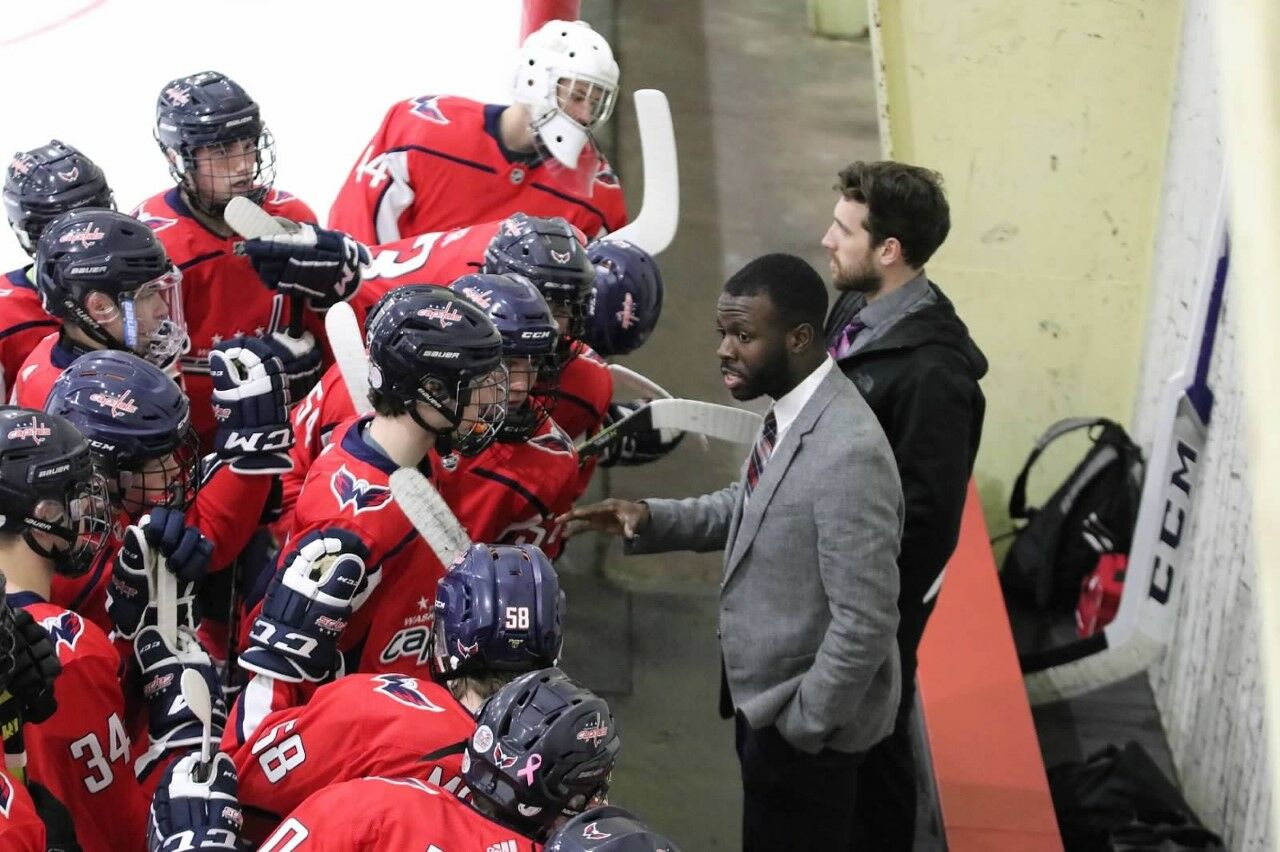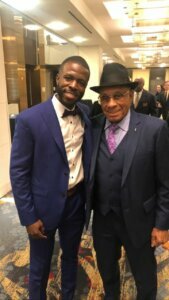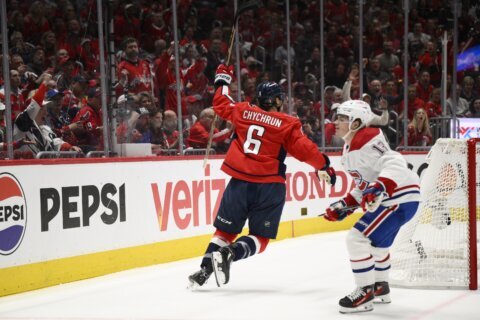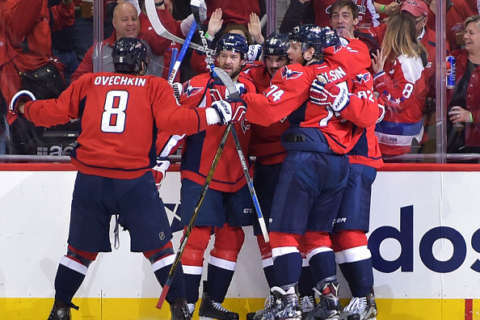
The Washington Capitals are not only trying to break through on the ice, but break down racial barriers to the game of hockey.
Duante Abercrombie grew up playing hockey in D.C., coaching with several programs, including the Washington Little Caps, and is now on the recently formed Capitals Black Hockey Committee.
Abercrombie believes the Capitals’ commitment to inclusion is the continuation of a promise the team made when it started in 1974 and signed Mike Marson as the second Black player in NHL history.
“Hockey has been shown as an elitist white sport, and we want to make sure that is no longer the case,” Abercrombie said.
“Peter Laviolette (Capitals head coach), the Washington Capitals, the NHL are doing whatever they can to make sure that, going forward, Black people feel welcomed in the hockey world.”

And Abercrombie is excited that the Capitals are being so proactive in making sure positive change happens and there is more diversity in hockey.
The Capitals Black Hockey Committee has been meeting on a regular basis to address ways to eradicate racism and discuss growing the game in underserved communities.
The Capitals have always been involved with the Fort Dupont Cannons program in Southeast D.C., and the goal is to extend the connection with other rinks and hockey programs.
Already planned is a virtual panel for youth coaches in the region, featuring Laviolette. The discussion will focus on addressing racism in hockey and how to approach the conversations with players, parents, coaches and rinks.
“My goal is to try to just help educate and create as much access to the game for people that look like me,” Abercrombie said.
“It is being able to compete and succeed with individuals that don’t look like you, that may not come from the same background or speak the same language. That experience will make a difference when these kids enter the real world.”
Hockey changed Abercrombie’s life. At the age of six, Abercrombie wanted to give the sport a try, and the Fort Dupont program, run by legendary coach Neil Henderson, offered a wonderful environment where a young Black kid could “feel at home” playing hockey.
“A lot of my friends were like, ‘Those aren’t football pads, why are you wearing that?'” Abercrombie said. “I told them flat out when I was in first grade hockey, ‘This is what I do,’ and they were like, ‘Well, why aren’t you playing football because hockey is a white man’s sport?'”
That’s what drives Abercrombie as he keeps up a busy schedule coaching youth teams and at Stevenson University in Baltimore. He does not want hockey to be viewed as the white man’s sport and he is proud to be a part of the Capitals’ drive to make a hockey a sport for all.
To that end, the Capitals launched Breaking the Ice, a new program designed to introduce first-time hockey players to the game at home. The program features an instructional video series hosted by the Black-led nonprofit DC Mamba.
“I definitely think it’s getting better,” Abercrombie said. “There’s more Black and female players in the game currently than there have ever been, especially in the Washington, D.C., area. That means the Capitals have done a good job of infiltrating space and spreading the love of the game to not only the traditional hockey market but to the urban community as well.”
Hockey is not cheap, and to try and remove the cost barrier to the sport, the Capitals have launched the Capital Impact Fund.
Fans are able to donate to the fund through the Capitals’ website, and the goal is to provide financial assistance to players at all levels to make sure the drive and determination of players become more important than dollars.
“I’ve had plenty of parents come up to me and say, ‘You know I’d love to get my child in hockey, but it’s too expensive,'” Abercrombie said.
“That kills me at the core because I was once one of those kids. Growing up, I couldn’t play on some of the elite teams because we didn’t have the money needed. That’s why it means so much to me to be part of the Capitals’ drive to make the game accessible to everyone.”
More from WTOP’s series Sports and the Black Experience
- 2 Black women make history, become leaders of DC sports teams
- Washington Football and the Black experience







